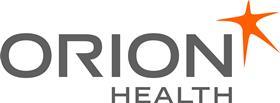Dan Midgley discusses the importance of harnessing NHS data to drive innovation and improve patient outcomes in healthcare
Data is one of healthcare’s most invaluable assets. It has huge potential when it comes to driving innovation – from reshaping decision-making and driving advancement in patient care to finding new cures and treatments for chronic diseases and illnesses. Providing it is harnessed effectively, health and care data have the ingredients to change the way care is delivered and improve outcomes for all.
Sponsored by
It’s no secret the NHS is facing unprecedented challenges. We’re inundated with headlines about unmet targets, 18-month waiting lists, and unhappy frontline staff. With an ageing population, increasing healthcare demands and continuing budget constraints none of this is going to get any easier if we’re not careful. Data has the ability to be a powerful member of our healthcare team, so how do we unlock its potential?
As the world’s largest health system, the NHS is lucky enough to hold one of the most significant and diverse data sets. It’s estimated that the NHS treats 1 million people every 36 hours. Whether at a local GP, a community health service or in a hospital, each interaction creates a crucial data point that contributes to the wider picture of what’s happening both personally to us, but also within the population.
NHS England has been on a mission for many years to provide digitally enabled care through various projects, a major one being shared care records that bring together a patient’s health and social care data within their geographical region. This is a big first step in realising the potential of data – and we can already see the value care teams gain from having access to this by being able to make more informed decisions and provide safer and more timely care.
Towards the end of 2023, it was reported that 90 per cent of NHS hospital trusts have now adopted electronic patient records. These EPRs give clinicians access to the crucial data they need at the point of care and are an excellent first step towards incorporating more modern technology that will help take the strain off our system and our healthcare workers.
We know this rich data is key to how healthcare systems operate going forward. Implementing new systems creates a perfect opportunity to ensure an advanced data strategy is incorporated from the outset. A robust health data platform will enable data to be captured, standardised and used to gain meaningful insights and ensure you’re ready for an AI future.
Imagine what a difference it would make if it was possible to leverage AI to analyse the vast amounts of data within patient records, quickly and accurately, to provide snapshot summaries, identify patterns, help predict diseases, and recommend interventions. Or if we could help reduce the administrative burden on hospitals by automating tasks that should be simple, like appointment scheduling or extracting national returns.
While we’re on the journey of improving how we share and collaborate on data, it’s imperative we don’t stop there. A modern health data platform should go hand in hand with these systems so that the right foundations are in place to ensure data is working smarter and harder. By unlocking the true value of data that’s well within our reach, we can be proactive in embracing these transformative technologies to ensure a healthier and more resilient future for our NHS.
Find out more here.




























